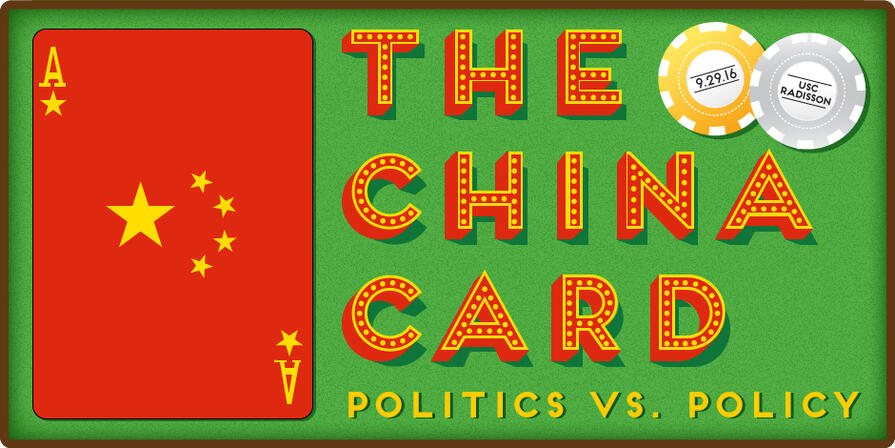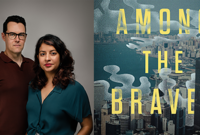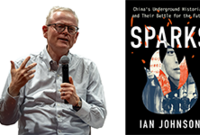Given the importance and complexity of U.S.-China relations, it is not surprising that American policy toward China has become a potent political issue. The USC U.S-China Institute hosted a daylong conference on the role of China in American politics and whether or not policies toward China have changed or should change. Speakers included prominent policymakers, public intellectuals, and scholars. They examined the positions and actions of interest groups, the concerns and impact of allies, and the role of specialists. They also discussed perceptions of China and the U.S.-China relationship and the realities of our relationship.
Topics included:
- economic ties, including trade, investment, market access, and participation in international economic institutions
- environmental worries, including technology, targets, and monitoring
- security challenges, including regional tensions, weapons proliferation, and alliances
- politics and law, including how we talk about and to each other about civil liberties and legal procedures
- the roles of businesses, business groups, civic organizations, research institutions, and varying levels of government in U.S.-China politics and the making of policies
The China Card conference celebrated the tenth anniversary of the creation of the USC U.S.-China Institute by USC President C.L. “Max” Nikias.
 Erin Baggott Carter is an Assistant Professor at the School of International Relations at the University of Southern California. She received a Ph.D. in Political Science from Harvard University in 2016. Erin’s research focuses on Chinese foreign policy and computational social science. She draws upon field research in China, documents about American foreign policy gained through Freedom of Information Act requests, and datasets of Chinese propaganda. Erin's book project finds that the United States and China employ diplomacy to build trust and substantive cooperation, but that the domestic politics of each country can fundamentally destabilize this process.
Erin Baggott Carter is an Assistant Professor at the School of International Relations at the University of Southern California. She received a Ph.D. in Political Science from Harvard University in 2016. Erin’s research focuses on Chinese foreign policy and computational social science. She draws upon field research in China, documents about American foreign policy gained through Freedom of Information Act requests, and datasets of Chinese propaganda. Erin's book project finds that the United States and China employ diplomacy to build trust and substantive cooperation, but that the domestic politics of each country can fundamentally destabilize this process. Susan Finder is a Visiting Lecturer at the School of Transnational Law of Peking University. Susan has written forThe Diplomat,South China Morning Post, the Global Military Justice Reformblog, Practical Law China, and other publications. Earlier in her career, she taught Chinese law and other subjects at the City University of Hong Kong, where she wrote the first close analysis of the operations of the Supreme People’s Court. A Harvard graduate, she was also part of the China practice group of the international law firm Freshfields Bruckhaus Deringer.
Susan Finder is a Visiting Lecturer at the School of Transnational Law of Peking University. Susan has written forThe Diplomat,South China Morning Post, the Global Military Justice Reformblog, Practical Law China, and other publications. Earlier in her career, she taught Chinese law and other subjects at the City University of Hong Kong, where she wrote the first close analysis of the operations of the Supreme People’s Court. A Harvard graduate, she was also part of the China practice group of the international law firm Freshfields Bruckhaus Deringer.  Yasheng Huang 黄亚生 teaches global economics and management as well as about the Chinese economy at the MIT Sloan School of Management, where he is also an Associate Dean. Huang founded and runs the China Lab, which aims to help entrepreneurs improve their management skills. Huang is frequently quoted on international business, political economy, and international management and his research has been discussed in many publications, including The Wall Street Journal, The Economist, and in numerous Chinese publications. Huang’s books include Capitalism with Chinese Characteristics (2008), Financial Reform in China (2005), and Selling China(2003).
Yasheng Huang 黄亚生 teaches global economics and management as well as about the Chinese economy at the MIT Sloan School of Management, where he is also an Associate Dean. Huang founded and runs the China Lab, which aims to help entrepreneurs improve their management skills. Huang is frequently quoted on international business, political economy, and international management and his research has been discussed in many publications, including The Wall Street Journal, The Economist, and in numerous Chinese publications. Huang’s books include Capitalism with Chinese Characteristics (2008), Financial Reform in China (2005), and Selling China(2003). 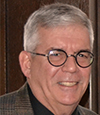 John Kamm is an American businessman and human rights campaigner. He founded and leads The Dui Hua Foundation. Kamm’s work has been recognized with awards from two American presidents (“Best Global Practices in Commerce” in 1997, and “Eleanor Roosevelt Award for Human Rights” in 2001) and with a “genius” grant from the MacArthur Foundation in 2004. Kamm has engaged the Chinese government in a dialogue on human rights, focusing on the treatment of prisoners and conditions in prisons. Dui Hua has submitted requests for information on more than 6,000 prisoners and has helped hundreds gain early release and better treatment.
John Kamm is an American businessman and human rights campaigner. He founded and leads The Dui Hua Foundation. Kamm’s work has been recognized with awards from two American presidents (“Best Global Practices in Commerce” in 1997, and “Eleanor Roosevelt Award for Human Rights” in 2001) and with a “genius” grant from the MacArthur Foundation in 2004. Kamm has engaged the Chinese government in a dialogue on human rights, focusing on the treatment of prisoners and conditions in prisons. Dui Hua has submitted requests for information on more than 6,000 prisoners and has helped hundreds gain early release and better treatment.  Mary Beth Long served as U.S. Assistant Secretary of Defense for International Security Affairs from 2007 to 2009. Prior to this she served as the Deputy Assistant Secretary (2004-2007). Her duties included chairing NATO’s committee on nuclear policy and serving as a key advisor to Secretaries Rumsfeld and Gates. She was a CIA operations officer from 1986 to 1999. Long earned awards for her service in the CIA and Defense Department. A licensed attorney, Long has worked in the private sector since 2009. She founded a government contracting company and an international consulting firm and was an advisor to the 2012 Romney presidential campaign. She studied in Taiwan as an undergrad. As Assistant Secretary, she met with Ma Ying-jeou's representative Wang Jin-ping in DC on January 24-26, 2006.
Mary Beth Long served as U.S. Assistant Secretary of Defense for International Security Affairs from 2007 to 2009. Prior to this she served as the Deputy Assistant Secretary (2004-2007). Her duties included chairing NATO’s committee on nuclear policy and serving as a key advisor to Secretaries Rumsfeld and Gates. She was a CIA operations officer from 1986 to 1999. Long earned awards for her service in the CIA and Defense Department. A licensed attorney, Long has worked in the private sector since 2009. She founded a government contracting company and an international consulting firm and was an advisor to the 2012 Romney presidential campaign. She studied in Taiwan as an undergrad. As Assistant Secretary, she met with Ma Ying-jeou's representative Wang Jin-ping in DC on January 24-26, 2006.
 Barry Naughton is the Sokwanlok Chair of Chinese International Affairs at the School of Global Policy & Strategy at the UCSD. He has addressed economic reform in Chinese cities, trade and trade disputes between China and the United States, and economic interactions among China, Taiwan, and Hong Kong. Naughton wrote the most widely used textbook on China's economy, The Chinese Economy: Transitions and Growth and his groundbreaking book Growing Out of the Plan: Chinese Economic Reform, 1978-1993 received the Ohira Memorial Prize. Naughton writes a quarterly analysis of the Chinese economy forChina Leadership Monitor.
Barry Naughton is the Sokwanlok Chair of Chinese International Affairs at the School of Global Policy & Strategy at the UCSD. He has addressed economic reform in Chinese cities, trade and trade disputes between China and the United States, and economic interactions among China, Taiwan, and Hong Kong. Naughton wrote the most widely used textbook on China's economy, The Chinese Economy: Transitions and Growth and his groundbreaking book Growing Out of the Plan: Chinese Economic Reform, 1978-1993 received the Ohira Memorial Prize. Naughton writes a quarterly analysis of the Chinese economy forChina Leadership Monitor.  Jonathan Rothwell, Gallup’s Senior Economist, researches and publishes on a broad range of topics and advises Gallup clients and associates on research questions and economic analysis. Findings from his research have been reported by many news organizations, including The Economist, The Wall Street Journal,The New York Times, The Washington Post, Vox and The Atlantic. Before joining Gallup, Rothwell was a fellow at the Brookings Institution’s Metropolitan Policy Program. Rothwell was educated at Penn State and Princeton University.
Jonathan Rothwell, Gallup’s Senior Economist, researches and publishes on a broad range of topics and advises Gallup clients and associates on research questions and economic analysis. Findings from his research have been reported by many news organizations, including The Economist, The Wall Street Journal,The New York Times, The Washington Post, Vox and The Atlantic. Before joining Gallup, Rothwell was a fellow at the Brookings Institution’s Metropolitan Policy Program. Rothwell was educated at Penn State and Princeton University.  Phillip Saunders is Director of the Center for the Study of Chinese Military Affairs at the Institute for National Strategic Studies. Dr. Saunders served as Director of Studies for the Center for Strategic Research and has previously worked at the Monterey Institute of International Studies. Dr. Saunders is co-author with David Gompert of The Paradox of Power: Sino-American Strategic Restraint in an Era of Vulnerability (2011) and co-editor with Andrew Scobell ofPLA Influence on China’s National Security Policymaking (2015). He has published numerous articles and book chapters on China and Asian security issues in journals such as International Security, China Quarterly, and The China Journal.
Phillip Saunders is Director of the Center for the Study of Chinese Military Affairs at the Institute for National Strategic Studies. Dr. Saunders served as Director of Studies for the Center for Strategic Research and has previously worked at the Monterey Institute of International Studies. Dr. Saunders is co-author with David Gompert of The Paradox of Power: Sino-American Strategic Restraint in an Era of Vulnerability (2011) and co-editor with Andrew Scobell ofPLA Influence on China’s National Security Policymaking (2015). He has published numerous articles and book chapters on China and Asian security issues in journals such as International Security, China Quarterly, and The China Journal.
 Deborah Seligsohn researches environmental governance at the University of California at San Diego, looking at air pollution regulation in China and India. From 2007 to 2012 she was based in Beijing as the Principal Advisor to the World Resources Institute’s China Energy and Climate Program. She also had over 20 years’ experience in the United States Department of State, working on energy and environment issues. She has a master’s degree from Princeton University’s Woodrow Wilson School in Science, Technology and Environmental Policy, and her BA is from Harvard University in East Asian Studies. She blogs regularly at ChinaFAQs.org, ChinaFile.com and the Huffington Post and has been published in the New Scientist, the Financial Times and theSouth China Morning Post.
Deborah Seligsohn researches environmental governance at the University of California at San Diego, looking at air pollution regulation in China and India. From 2007 to 2012 she was based in Beijing as the Principal Advisor to the World Resources Institute’s China Energy and Climate Program. She also had over 20 years’ experience in the United States Department of State, working on energy and environment issues. She has a master’s degree from Princeton University’s Woodrow Wilson School in Science, Technology and Environmental Policy, and her BA is from Harvard University in East Asian Studies. She blogs regularly at ChinaFAQs.org, ChinaFile.com and the Huffington Post and has been published in the New Scientist, the Financial Times and theSouth China Morning Post.
 Robert Shrum is the Warshaw Chair in Practical Politics at USC. Over the past four decades, few have had the influence or depth of experience in American politics as Robert Shrum. His first national campaign was the 1972 McGovern race. He subsequently guided four other national campaigns. He played an important role in thirty winning campaigns for U.S. Senate, eight winning campaigns for governor, and winning mayoral races in New York, Los Angeles, Chicago, and other cities. He also consulted on successful campaigns in Israel and Britain. Shrum published his memoir, No Excuses, in 2007.
Robert Shrum is the Warshaw Chair in Practical Politics at USC. Over the past four decades, few have had the influence or depth of experience in American politics as Robert Shrum. His first national campaign was the 1972 McGovern race. He subsequently guided four other national campaigns. He played an important role in thirty winning campaigns for U.S. Senate, eight winning campaigns for governor, and winning mayoral races in New York, Los Angeles, Chicago, and other cities. He also consulted on successful campaigns in Israel and Britain. Shrum published his memoir, No Excuses, in 2007.  SUN Zhe 孙哲 is an adjunct senior research scholar and co-director of China Initiative at School of International and Public Affairs of Columbia University. He founded the Center for U.S.-China Relations at Tsinghua University and previously taught at Fudan University and Ramapo College of New Jersey. He received a Ph.D in Political Science from Columbia University and has written and edited more than twenty books, including American Studies in China: 1979-2006 (2007) and Rise and Expansion: American Domestic Politics and US-China Relations (2004). Sun serves as a senior consultant to the US-China Strategic & Economic Dialogue and is a senior policy adviser to the Office of Taiwan Affairs of the State Council.
SUN Zhe 孙哲 is an adjunct senior research scholar and co-director of China Initiative at School of International and Public Affairs of Columbia University. He founded the Center for U.S.-China Relations at Tsinghua University and previously taught at Fudan University and Ramapo College of New Jersey. He received a Ph.D in Political Science from Columbia University and has written and edited more than twenty books, including American Studies in China: 1979-2006 (2007) and Rise and Expansion: American Domestic Politics and US-China Relations (2004). Sun serves as a senior consultant to the US-China Strategic & Economic Dialogue and is a senior policy adviser to the Office of Taiwan Affairs of the State Council.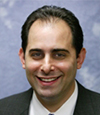 Jeremie Waterman is the Senior Director, Greater China, at the U.S. Chamber of Commerce in Washington, D.C., where he is responsible for developing and executing U.S. Chamber programs and policy relating to U.S. trade and investment in the Greater China region. Mr. Waterman works extensively with member companies, state and local chambers of commerce, business coalitions, American Chambers of Commerce abroad, and the U.S. and foreign governments. Prior to joining the U.S. Chamber, Mr. Waterman worked for over five years at The US-China Business Council as well as at Office of the United States Trade Representative. Mr. Waterman received a Master's degree in Law and Diplomacy from the Fletcher School of Law and Diplomacy in Boston and is a graduate of UCLA.
Jeremie Waterman is the Senior Director, Greater China, at the U.S. Chamber of Commerce in Washington, D.C., where he is responsible for developing and executing U.S. Chamber programs and policy relating to U.S. trade and investment in the Greater China region. Mr. Waterman works extensively with member companies, state and local chambers of commerce, business coalitions, American Chambers of Commerce abroad, and the U.S. and foreign governments. Prior to joining the U.S. Chamber, Mr. Waterman worked for over five years at The US-China Business Council as well as at Office of the United States Trade Representative. Mr. Waterman received a Master's degree in Law and Diplomacy from the Fletcher School of Law and Diplomacy in Boston and is a graduate of UCLA.
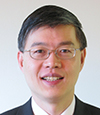 Dali Yang 楊大利 teaches political science at the University of Chicago. He was the founding director of Chicago's Beijing Center and also served as director of Chicago's Center for East Asian Studies. He headed the East Asian Institute at the National University of Singapore and is the author of numerous books and scholarly articles on the politics and political economy of China, including Remaking the Chinese Leviathan: Market Transition and the Politics of Governance in China (2004); Beyond Beijing: Liberalization and the Regions in China (1997); and Calamity and Reform in China: State, Rural Society, and Institutional Change since the Great Leap Famine (1996).
Dali Yang 楊大利 teaches political science at the University of Chicago. He was the founding director of Chicago's Beijing Center and also served as director of Chicago's Center for East Asian Studies. He headed the East Asian Institute at the National University of Singapore and is the author of numerous books and scholarly articles on the politics and political economy of China, including Remaking the Chinese Leviathan: Market Transition and the Politics of Governance in China (2004); Beyond Beijing: Liberalization and the Regions in China (1997); and Calamity and Reform in China: State, Rural Society, and Institutional Change since the Great Leap Famine (1996). 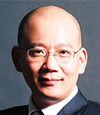 Victor Yuan 袁岳 founded and leads Horizon Research Consultancy Group 零点研究咨询集团, China’s leading public opinion and polling organization. With almost years of experience in marketing, sociological research, policy analysis, and management consulting, Yuan’s socially oriented polling work has successfully encourages increased NGO services for homeless people, helped revamp HIV/AIDS prevention programs, increase efforts to assist the integration of migrant workers into urban communities, and improved conditions within factories. Horizon carries out the China work for Pew Research Group’s global studies. Yuan is a leader in several professional organizations, hosted a business TV talk show, and lectures at leading universities.
Victor Yuan 袁岳 founded and leads Horizon Research Consultancy Group 零点研究咨询集团, China’s leading public opinion and polling organization. With almost years of experience in marketing, sociological research, policy analysis, and management consulting, Yuan’s socially oriented polling work has successfully encourages increased NGO services for homeless people, helped revamp HIV/AIDS prevention programs, increase efforts to assist the integration of migrant workers into urban communities, and improved conditions within factories. Horizon carries out the China work for Pew Research Group’s global studies. Yuan is a leader in several professional organizations, hosted a business TV talk show, and lectures at leading universities. 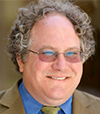 Clayton Dube 杜克雷 heads the USC U.S.-China Institute. Dube and the institute are focused on informing public discussion about the importance and evolving nature of U.S.-China relations. Dube teaches Chinese history and studies the role of the media in U.S.-China relations.
Clayton Dube 杜克雷 heads the USC U.S.-China Institute. Dube and the institute are focused on informing public discussion about the importance and evolving nature of U.S.-China relations. Dube teaches Chinese history and studies the role of the media in U.S.-China relations. 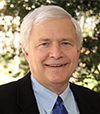
 Yu HONG works on political economy and teaches communication at USC. Her research includes information and communication technologies and their development, the political economy of global communication, China's information and communications industry, information labor, and information society theories. She is the author of Class Formation, and China's Informationized Policy of Economic Development and is at work on Networking China: The Digital Transformation of the Chinese Economy.
Yu HONG works on political economy and teaches communication at USC. Her research includes information and communication technologies and their development, the political economy of global communication, China's information and communications industry, information labor, and information society theories. She is the author of Class Formation, and China's Informationized Policy of Economic Development and is at work on Networking China: The Digital Transformation of the Chinese Economy.  David Kang is Professor of International Relations and Business at the University of Southern California. He is also Director of USC Korean Studies Institute and Director of the USC Center for International Studies. Kang is the author of multiple books and has also written opinion pieces in the New York Times, the Financial Times, the Washington Post, and the Los Angeles Times. He received an A.B. with honors from Stanford University and his Ph.D. from Berkeley.
David Kang is Professor of International Relations and Business at the University of Southern California. He is also Director of USC Korean Studies Institute and Director of the USC Center for International Studies. Kang is the author of multiple books and has also written opinion pieces in the New York Times, the Financial Times, the Washington Post, and the Los Angeles Times. He received an A.B. with honors from Stanford University and his Ph.D. from Berkeley.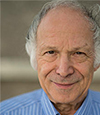 Stanley Rosen 骆思典 teaches political science at USC and for six years served as director of the East Asian Studies Center. Rosen has written on a wide range of subjects, from his early work on the Cultural Revolution to his work on education, film, and soft power. His most recent books are Art, Politics and Commerce in Chinese Cinema (ed. with Y. Zhu) and Chinese Politics: State, Society and the Market (ed. with P. Gries). Rosen is co-editor of the journalChinese Education and Society.
Stanley Rosen 骆思典 teaches political science at USC and for six years served as director of the East Asian Studies Center. Rosen has written on a wide range of subjects, from his early work on the Cultural Revolution to his work on education, film, and soft power. His most recent books are Art, Politics and Commerce in Chinese Cinema (ed. with Y. Zhu) and Chinese Politics: State, Society and the Market (ed. with P. Gries). Rosen is co-editor of the journalChinese Education and Society.In April, we focused on China’s internal situation and its external relations at our China’s Growing Pains conference featuring America’s top diplomat on East Asia, as well as top analysts. Watch their presentations at our website or YouTube channel.
Other resources:
USCI has monitored China in American politics for years. Please take a look at:
China in the U.S. Presidential Debates, 1960-2016
Election ’08 and the Challenge of China (or watch it on YouTube)
2010: China in US Campaign Ads and Election Outcomes
2012: China in US Campaign Ads

